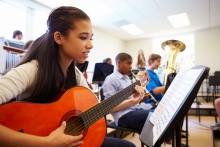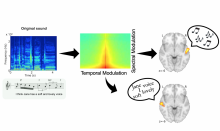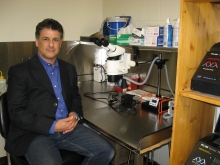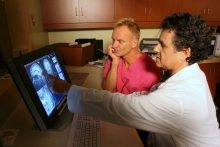Music has the best chance of providing pain relief when it is played at our natural rhythm, a McGill University research team has discovered.
This suggests it may be possible to reduce a patient’s level of pain by using technology to take a piece of music someone likes and adjust the tempo to match their internal rhythm, the researchers said.
The discovery was the subject of a paper published this week in Pain, the top journal in the field of pain medicine and research.













